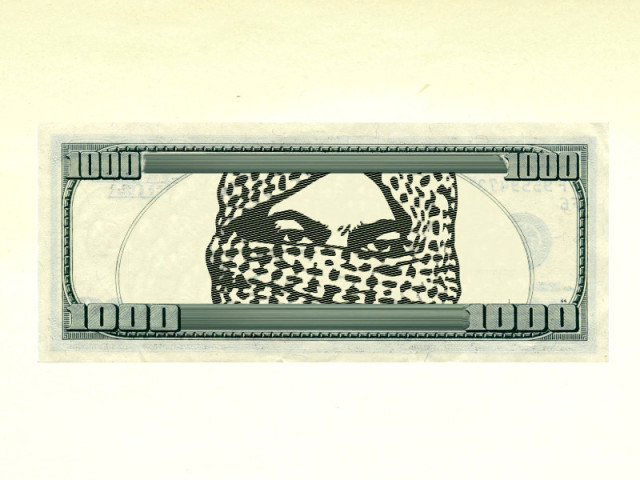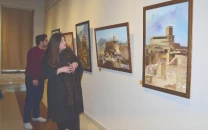Losing sight of the money trail
Investigative authorities often overlook suspicious financial activities that can help track them.

In the absence of a national counter-terrorism (CT) policy or an authority to coordinate various CT wings operating in the country, investigators often end overlooking the money trail suspected terrorists leave behind while being caught up with trying to nab them.
“Following the money trail requires a lot of inter-agency and finance ministry finance coordination. Since each unit is not too keen on sharing information regarding terrorists with others, the money trail is often forgotten,” a senior CT official with the Crime Investigation Department (CID) said.
Also, while specialised units are in place to keep a check on suspicious financial activities, there are certain grey areas where no one looks for suspects.
These include tracking money donated to various organisations as charity and investigating whether black money generated through terrorism is being reinvested in legitimate business concerns in the country.
Threats
The Federation of Pakistan Chambers of Commerce and Industry (FPCCI) has 48 chambers under it, along with around 140 associations representing industry, trade and service sectors across the country.
Due to increasing threats to the business community, it recently formed a Standing Committee on Anti-Terrorism and Special Security to coordinate with government security agencies.
Committee chairman Sardar Shoukat Popalzai told The Express Tribune that businessmen in Peshawar and Karachi are bearing the brunt.
“There are several examples where businessmen had to either give in to huge extortion demands or were kidnapped and later released for a ransom,” he said.
“The main problem is that there is no organised mechanism (such as a national CT authority) or technical expertise with the authorities that can deal with such cases professionally,” he said. Often businessmen don’t report threats to the authorities and instead choose to settle the matter on their own, he added.
Regarding charity donations that authorities suspect end up funding banned outfits, Popalzai said there are two reasons why businessmen continue them.
“Firstly, they trust the charities they donate to. Secondly, many donate to questionable charities out of fear of retribution if they don’t dish out the money,” he said.
Federal Investigation Agency’s (FIA) Crime Branch head Faqeer Mohammad confirmed the analysis.
“Many businessmen are forced to give in to extortion demands in the name of charities because they fear for their life. Often they don’t even report it to the police, because they have no faith in them,” he said.
Popalzai maintained it was the job of the authorities to clamp down on such charities.
Units
Post 9/11, a Special Investigation Group (SIG) trained to follow the money trail was formed in the FIA.
Mohammad, a former SIG head before taking over his current position in the Crime Branch, said the agency cracked several money laundering cases in Pakistan.
“Since money laundering is a global concern, we often coordinated our efforts with Interpol and other agencies as well,” he said. He added SIG has all the expertise to follow the money trail.
But the local police is unable to follow through – often failing even get a proper NIC card number from a suspect, Mohammad points out.
Furthermore, only certain cases fall under FIA’s jurisdiction. Current SIG Sindh head Abdul Shakoor Memon said they can’t look into a case absent instructions from Islamabad.
The Financial Monitoring Unit’s Director General Noman Qureshi told The Express Tribune that his unit has had many successes over the years, but declined to give any specifics since the unit is meant to stay in the background.
“We analyse suspicious transactions and profiles, especially in commercial banks, and pass on any leads we find to relevant authorities (FIA, Customs) who investigate the case from there.”
Blurred vision
While it is clear that no one knows for sure where the billions generated by terrorists through extortion, kidnapping and smuggling eventually end up, no one has thought much about looking into it.
Qureshi said his mandate was not to probe stock markets or the various business fronts that the terrorist organisations may have. FIA’s Mohammad said it was the local police’s job to investigate if black money was being used in stock markets or legitimate business concerns.
Meanwhile, Popalzai doubts whether the money generated through terrorism is being reinvested back in the country.
“Most of these terrorists are on the run, so I doubt whether they would use the money here.”
But how can we say that for sure if no agency is even looking for this money trail?
Published in The Express Tribune, September 8th, 2012.



















COMMENTS
Comments are moderated and generally will be posted if they are on-topic and not abusive.
For more information, please see our Comments FAQ